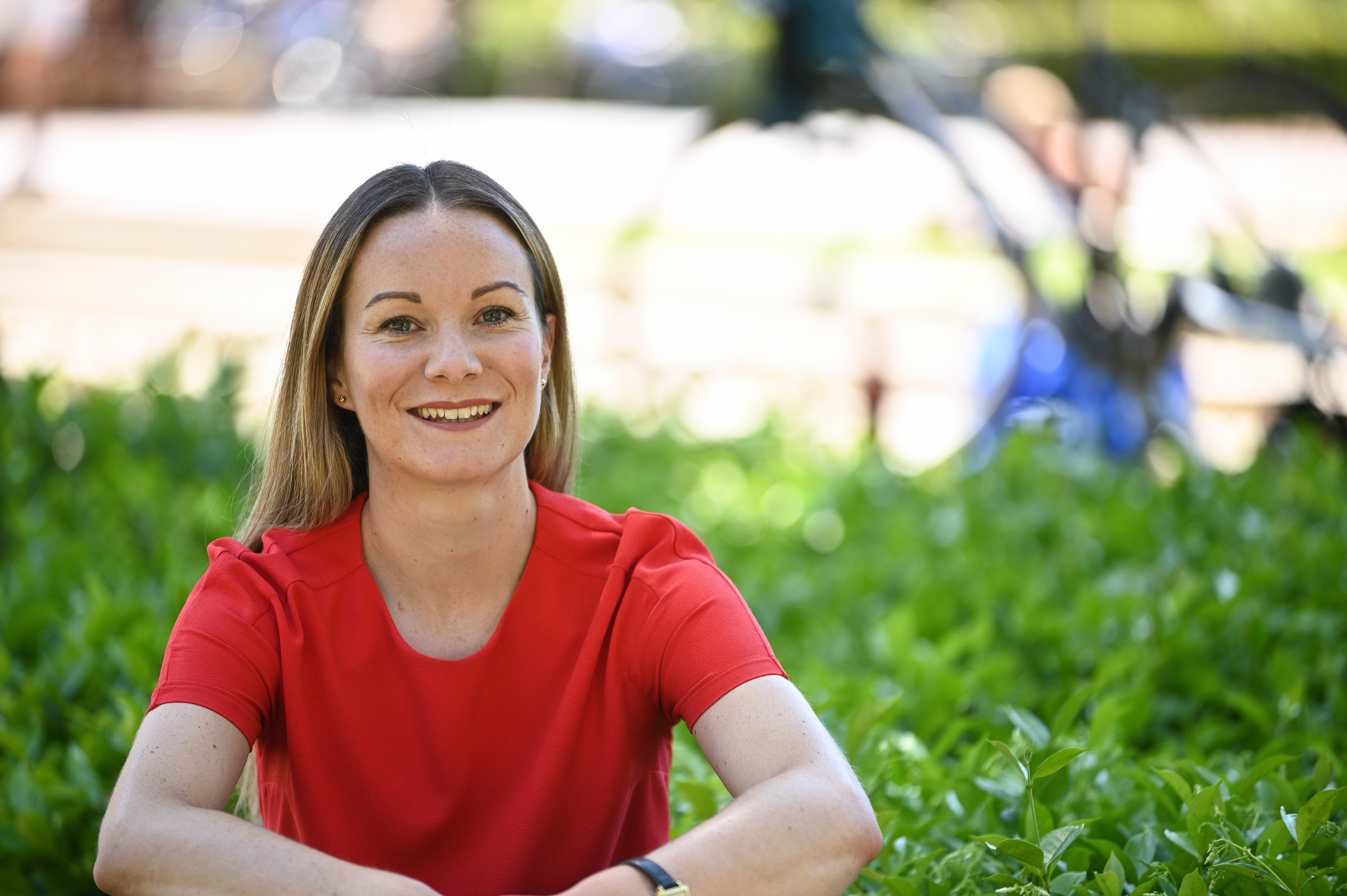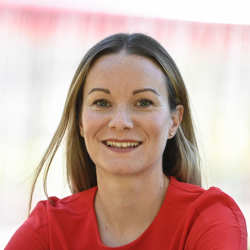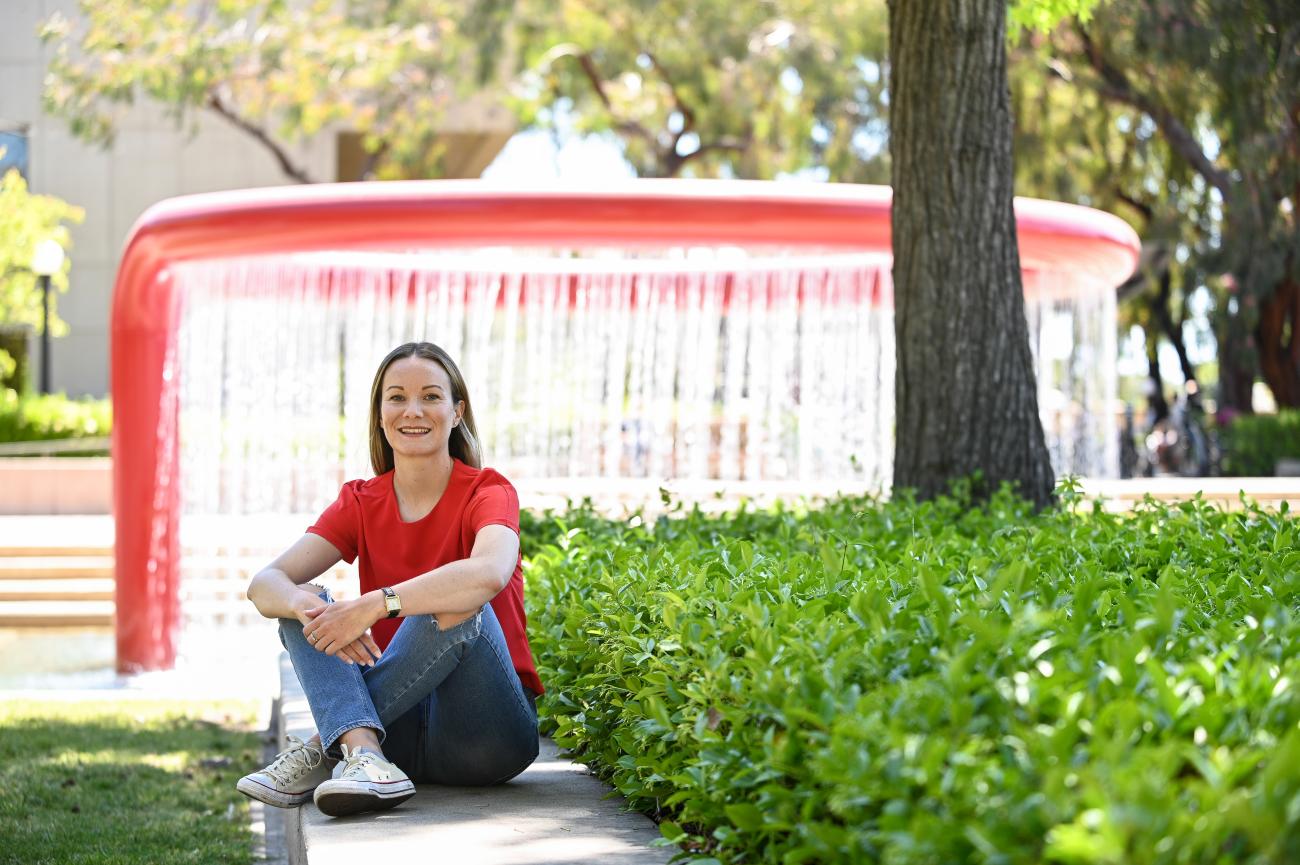
Jennifer Fortet
You’ve arrived at spring quarter! How would you describe your experience so far?
It is an incredible place to be: surrounded by wonderful people, opportunities to learn and grow, and new experiences to be shared. I have learned a phenomenal amount so far and it has changed the way I view many aspects of education.
What is unusual about the GCE/IEPA program?
The GCE/IEPA program has a high number of international students and we have such an incredible cohort. It is also unique in that we write an MA paper over the course of the year, which is a great opportunity to conduct research in the area you are most passionate about.
Is there any way that professors have impressed you that you’d like to share?
I have been really impressed with how welcoming faculty at the GSE are; we were even invited to a professor's house for Thanksgiving, which was so kind. Faculty are also very accessible. For example, I am taking directed reading with Professor [Martin] Carnoy to work 1:1 on areas of interest using one of his former studies, and Dr. [Ann] Jaquith has supported my qualitative data collection for my research paper.
Why Stanford?
The GSE provides a fantastic learning environment, and I was most drawn by the small cohort size, which facilitates a closer and more supportive connection with faculty. The options to take classes in other schools [within Stanford] is encouraged, and the provision for students on campus is unlike anything I have experienced. Being from the U.K., sunshine and blue skies aren’t a hard sell, but the campus is just an incredible environment, and one that I think is particularly suited to graduate study.
How would you describe the other students in your cohort?
Supportive. We have such a wonderful group. We check in with each other, we organize events together, and we learn from each other, with everyone sharing their education experiences from their home countries and experiences elsewhere.
What drew you to education?
I have been in the education field for ten years; however, it was a fellowship in Uganda that drew me to the GCE/IEPA program so that I could better understand education planning and programs in different contexts.
What were you doing prior to applying to the GSE?
Before applying to the GSE, I was the deputy principal / headteacher of an international school in New York. I had taught in a state school in London, and completed a fellowship in Uganda before moving to the U.S. to teach at the international school.
What are your career plans and goals?
Now I seek to combine my background in education and pedagogical skill set with the knowledge that I have acquired in the program to join an international organization focused on planning, managing, and financing education programs and systems in low-income countries and fragile contexts.

What advice do you have for students who are trying to decide whether to attend the GCE/IEPA program?
My advice would be to reach out to current students and ask about their experiences and the courses they took. There are some core classes that make up the program, and understanding those may help you decide whether the program is the right fit for you. Also consider the learning environment that suits you best; the smaller cohort sizes were an important factor for me.
Any tips for incoming students to help them get the most from their time at Stanford?
I would advise incoming students to arrive on campus early. I took part in SGSI [Stanford Graduate Summer Institute], which was a great way to ease into campus life and academic classes. I also met people early on from outside of my cohort who will become lifelong friends that I may not have otherwise met.
What do you do to relax and have fun?
I enjoy running in the mornings, either to the Dish [the Stanford radar dish, located on a hill behind campus], around campus, or on the athletics track, which is open to the public at specific times. I go to the driving range and have played on the golf course, which is heavily subsidized for students. The pool is an excellent spot to wind down and enjoy the sunshine, and my friends and I have a standing get-together at Tresidder [student union] for dinner and drinks every Friday. Off campus, bike rides, hikes, and beach visits are a great way to enjoy the outdoors, and I have loved traveling around California, too. A car can be helpful to explore a little further.
Can you share a particular moment in your time at Stanford when you learned a lesson that will stay with you?
The lessons I am learning will not become apparent until further down the line when I look back on this experience and recognize the full impact it has had. It is hard to see this when you are living the experience, but there is no doubt I am learning lifelong lessons most days!
Any other thoughts you’d like to share?
I’m proud to be a state-educated, first-generation, international student at Stanford. The GSE is very welcoming and supportive, and there is a student-led group for resilient first-generation students. I have also been able to work as a research assistant in the Language to Literacy Research Lab, allowing me to visit schools, which I have enjoyed.

Photos by Rod Searcey
